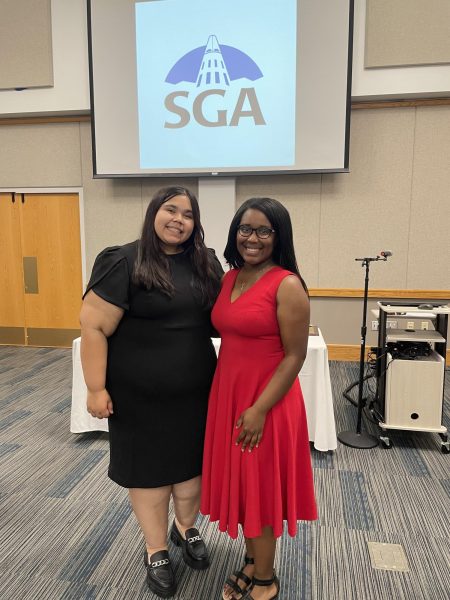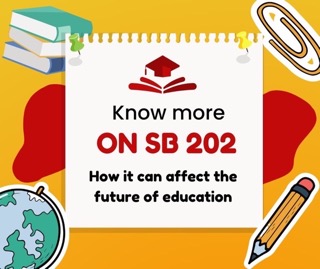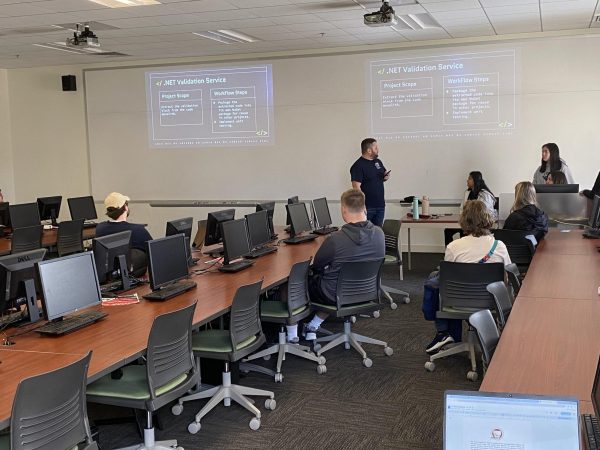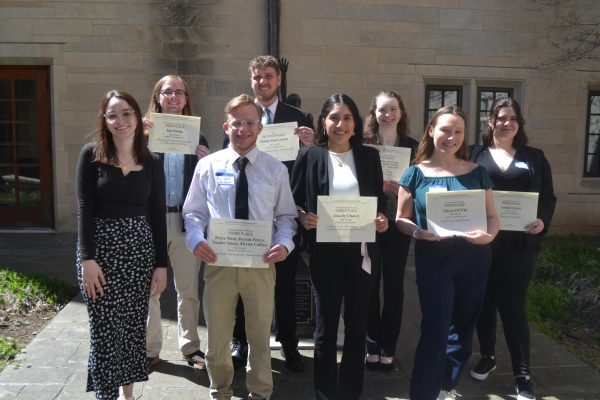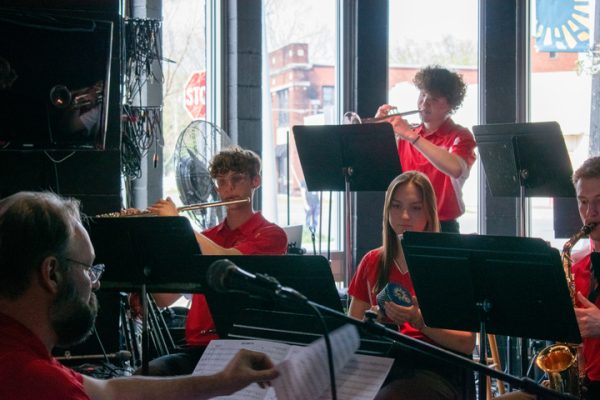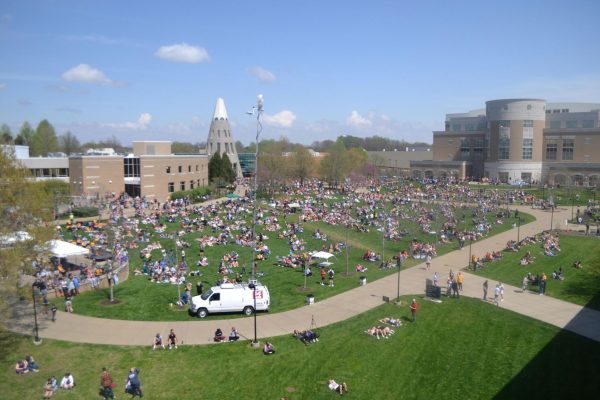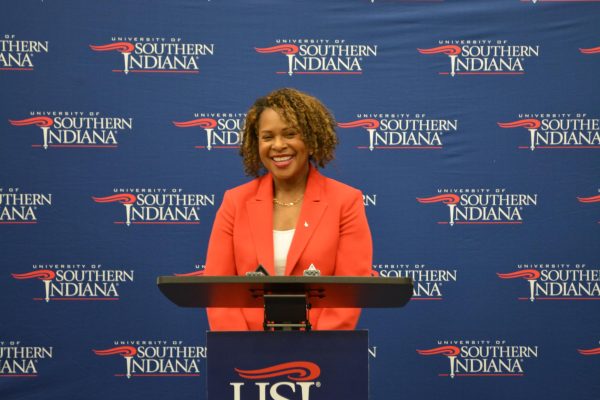Faculty Senate looks to revamp course evaluations
Grant Edwards said there isn’t much that would make him want to do the course evaluations that students receive at the end of each semester.
“They send you a bunch of emails near the end of the semester and you’re in the middle of studying and working on other things and you just don’t have time to fill them out,” the sophomore political science major said.
The Faculty Senate is in the process of updating and possibly replacing the course evaluations after low participation rates among students and much discussion.
The chair of the senate Nick LaRowe said participation rates are between 20 and 40 percent of students on average. Edwards said he believes the evaluations need “a lot of work” before they can become effective.
“I think they should try and make it so that students have more to say about a class or a particular professor,” he said.
Edwards said he answers his evaluations honestly and has only given one bad evaluation.
“When I attended Greenville College, I had a co-taught class and it was a mess,” he said. “They did paper copies right after the exam and I gave them a really bad evaluation because I was so upset with the way they taught.”
Course evaluations at USI switched from paper to online in 2012 with the university’s intent of obtaining more accurate data and making it easier to evaluate.
LaRowe said they are not looking to switch back to paper evaluations because they are too expensive.
Faculty Senate referred the course evaluation charge, a formal request to the senate for action, to the university assessment committee Nov. 11. The committee is analyzing data gathered from faculty focus groups and identifying concerns and issues. They are expected to present their findings to the full senate sometime this semester.
Faculty Senate will then create a committee composed of faculty to update the student evaluations.
LaRowe said faculty want to figure out what they’re measuring and find out whether the questions accurately measure it.
“Once we figure out what the specific problems are, we will then draw on professors that have the necessary expertise to fix those problems,” he said.
LaRowe said some of the problems are that certain questions don’t apply to all courses and some students aren’t qualified to answer some questions.
“As students there are some things that you are capable of evaluating, but other things may be an expert judgment where based, on the question, the student may not be capable of making a judgment because they don’t have training in teaching,” he said. “They can be critical that’s fine, but if they are saying, ‘I hate you, you suck,’ that doesn’t help me figure out how to improve my course. I don’t know what the particular objection was.”
LaRowe said as a tenured faculty member he feels less pressure from the responses on course evaluations.
“There can be a tendency to live and die with them when you are untenured, because you are always being evaluated to see whether you’re going to get tenure,” he said. “I think it makes a difference in just that you can focus on the problem without also worrying about its impact on your case for tenure.”
LaRowe said the faculty receive the results of their own course evaluations which are also reviewed by their department chairs. He said the dean of each college also has access to them.
“We as faculty take it seriously,” he said. “I am tenured. I could get terrible evaluations for the rest of my life and still keep my job, and I take them seriously still myself, and I know everybody else does too. If you’re here you care about teaching even if you’re tenured.”
Assessment committee chair Tamara Hunt said that the purpose of the student evaluations is to improve teaching and learning.
“In order to improve teaching and learning, we have to have data that gives us valuable information. In other words, the data has to tell us something that we can use,” she said.
Hunt said the committee will review the information gathered from faculty and determine what they need from students.
“As a teacher, one of the things we want to know is are our methods working for the students?” she said. “So if we have particular activities in our classes, do those activities promote student learning in the way we think they do?”
Hunt said course evaluations are important part of the tenure review process.
“Every review committee I have ever sat on there is an entire three ring binder full of teaching evaluations and the committee looks at those,” she said. “This is one of the ways we determine whether someone is an effective teacher or not. So one of the questions with the course evaluations is are we really getting a clear picture of what is going on in the classroom?”


